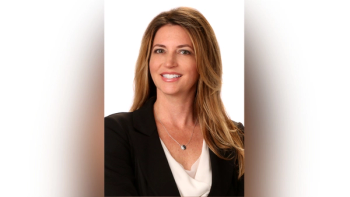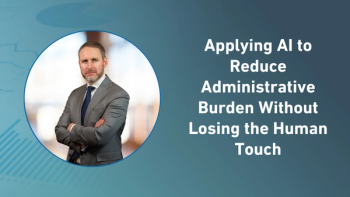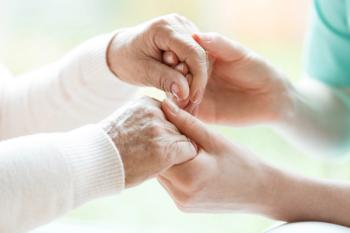
Applying Learning Health Systems to Advance Clinical Research and Health Care
The use of Learning Health Systems in order to advance clinical research.
Defining Learning Health Systems
According to the National Academy of Medicine, a Learning Health System is one in which science, informatics, and care culture are aligned to generate new knowledge as an ongoing natural byproduct of the care experience. The system seamlessly refines and delivers best practices for continuous improvement in health and health care.
Simply put, a Learning Health System represents a cultural commitment to learn and improve as a result of every single experience of every participant, so that our health system gets better and decisions get better. It moves us to a paradigm in which every decision affecting health is informed by actionable knowledge of what works best.
As such, Learning Health Systems involve multiple cycles of continuous learning. These cycles involve:
1. Taking what happens in the doctor’s office and outside health experience and turning that into data so we can learn from it (performance to data/P2D).
2. Transforming the data into knowledge (D2K) through analytics.
3. Mobilizing knowledge in tailored and actionable forms to inform decisions and be implemented into actions in a timely manner (knowledge to performance/K2P).
Patients, in collaboration with their clinicians, can make important health decisions not just based on a couple of clinical trials or their physician’s experience with a few patients, but based on the experience of every other patient like them and what worked and what did not.
Patients sharing their experiences
Despite the huge investment in clinical research, patients, caregivers, and clinicians often feel they do not have the information they need. To take one example of an effort to address these challenges, the Patient-Centered Outcomes Research Institute (PCORI) funds comparative clinical effectiveness research that gives patients and caregivers the ability to make better-informed health decisions, with a focus on sharing results with the public.
PCORI funds the development of both clinical data research networks (CDRNs) and patient-powered research networks (PPRNs). CDRNs perform data sharing and patient-centered clinical research, coordinating capabilities across organizations and other CDRNs. The University of Michigan Medical School is part of one CDRN, the Patient-Centered Network of Learning Health Systems (LHSNet). The institutions that are part of LHSNet have built relationships with patients and communities, academic medical centers, universities, health care centers and payers. LHSNet generates patient-centered knowledge and disseminates it widely to continuously optimize care for the 10 million people served by the network. This data sharing is also leveraged to focus on longitudinal study of certain diseases.
PPRNs are driven by collaboration among patients, registries, nonprofits, and patient advocacy organizations, often around a single disease such as vasculitis or COPD. The networks aim to transform clinical research by directly engaging patients who have particular diseases, as well as investigators, care providers, and health systems, to conduct patient-centered research. Often, patients consent to share their health information and can be directly involved in research design.
There are numerous other examples, including the Million Veteran Program and the All of Us Research Program, that focus on recruiting people who want to share their experiences to improve the future of health care.
Patient engagement: Patients as experts
At its core, patient empowerment is about putting power in the hands of patients, who are the ones who ultimately have the most skin in the game, to improve their health and the health of a loved one and the health of the others in the system as a whole.
For patients, there is this amazing enthusiasm, desire and also frustration of not being treated with respect, of using “patient” as a third-person word without the recognition that every single one of us will be or has been a patient or caregiver.
Many patients have a strong desire to get access to their data and to the literacy to understand-and to be able to do great things with it to improve their own health and the health of others. The fact is, their data is their life experience, and that can be painful. Their experience comes from having lived through it, which makes them an expert on what they’ve been through. Patients want to feel valued for their expertise and experience and also respected for what they’ve been through.
Advancing clinical research through Learning Health Systems
Not only can Learning Health Systems advance clinical research, but they also work to get that research into practice. The approach can dramatically improve how we learn from real experiences. If only 3 percent of patients are participating in clinical trials, even that participation is taking a fraction of patients’ experience. Imagine if we were learning from nearly 100 percent of patients who want to be a part of this, how much more quickly we could learn lessons and apply them.
Learning Health Systems are about linking real people’s health care experiences and their overall experiences that stretch beyond health care. The system is about empowering research and learning from each piece of it, and then translating what’s learned from the researchers beyond journals and papers into practice and into people’s lives-where it can improve health and save lives, millions or billions at a time.
Joshua C. Rubin, JD, MBA, MPH, MPP, Program Officer for Learning Health System Initiatives at the University of Michigan Medical School Department of Learning Health Sciences and member of the Advisory Committee of the
Joan Chambers, Senior Strategic Advisor, and Naomi Fujimoto, Senior Copywriter, both with SCORR Marketing and
Newsletter
Stay current in clinical research with Applied Clinical Trials, providing expert insights, regulatory updates, and practical strategies for successful clinical trial design and execution.




